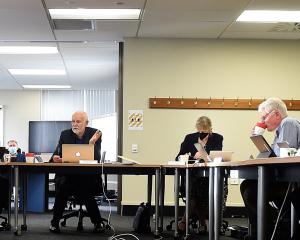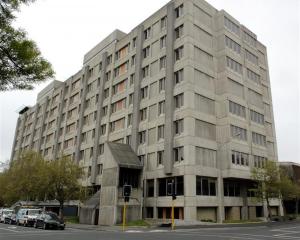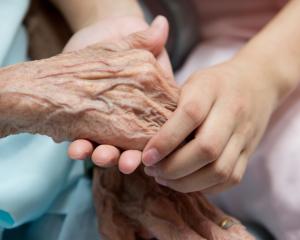About 8% of Southern District Health Board staff are paid less than the amount deemed a ''living wage'' by fair pay advocates, new figures show.
An Official Information Act request revealed 378 staff are paid less than $18.40 per hour.
It follows the disclosure in the board's last annual report that the number earning more than $100,000 a year increased by 10% in a single year.
The board employs about 4500 staff. Patient services director Lexie O'Shea said all workers received more than the legal minimum of $13.75 per hour.
''In many cases, these employees listed are paid rates set in agreement with their union representatives,'' Mrs O'Shea said.
The figures show DHB employees, but not those of community-based or private companies providing DHB-funded services, such as home help.
Service and Food Workers Union national secretary John Ryall said DHBs needed to address inequalities in employees' wages, but the main issue was sector underfunding.
Unions were meeting district health board representatives in Wellington early next month about the ''living wage'' campaign, the first of what was intended to be a series of meetings.
It was not part of formal wage negotiations, but the agreement to work on the ''living wage'' issue arose from the past round of pay talks.
That DHBs were ''prepared to keep talking about [the living wage]'' was heartening.
Boards should pay a wage that supported the health of the people who worked in it, he said. This in turn would send a message to the wider community about the health benefits of employers paying workers fairly.
''The way we have approached it is to raise the issue about the living wage, get some debate going on it, then try to confront the DHBs as an arm of government to consider ways in which the plight of low income workers in health sector can be improved.''
Public Service Association national secretary Brenda Pilott, when contacted, blamed sector underfunding for the low pay of clerical and other workers.
That the pay of those at the ''top end'' of the health board appeared to creep up reflected New Zealand's worsening wage inequality.
District health boards' employment strategy group chairman Graham Dyer said, when contacted, DHBs were committed to working constructively with unions on wage matters, but there was, however, ''not a lot of money'' in health for higher wages.
Approached for comment about pay issues, a spokeswoman for Health Minister Tony Ryall said comments by him would not be appropriate.
Pay gap
SDHB workers paid less than a ''living wage''
• Administration, clerical: 202
• Clinical support: 59
• Non-clinical support: 117











